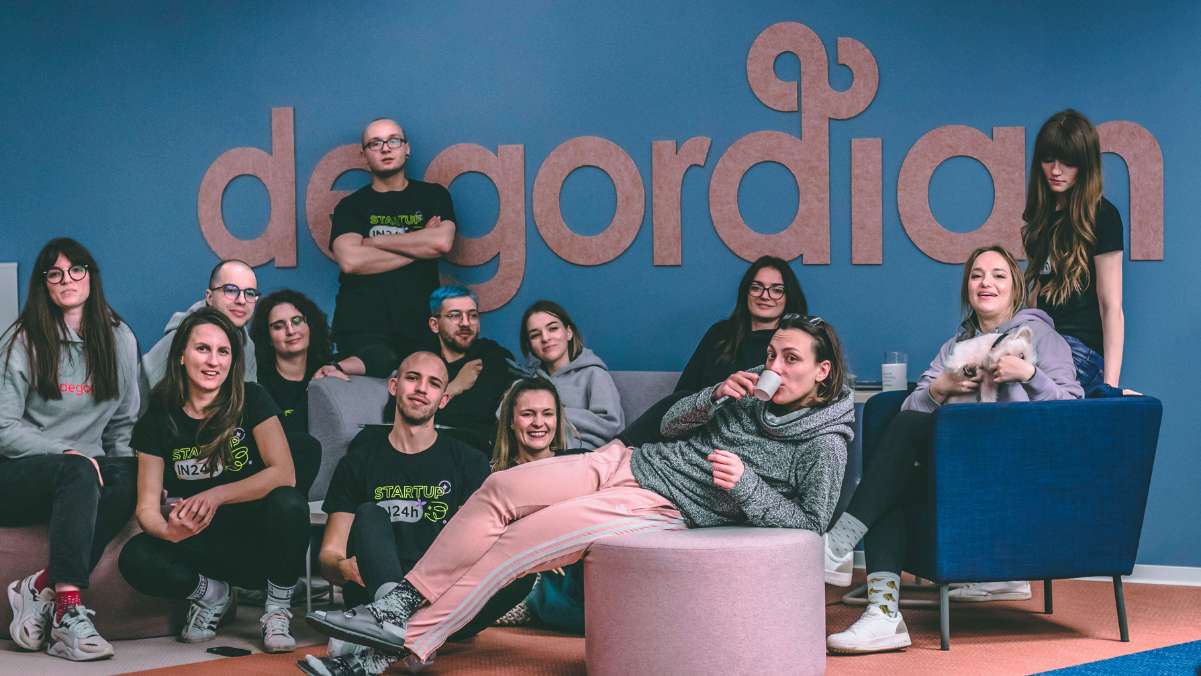Even though Ogilvy wrote his ‘Confessions of an Advertising Man’ in 1963, many of his advice still sticks, especially those about being a good client to your agency.
I put together some of his best advice and added some suggestions that can help improve your cooperation with your agency!
1. Select the right agency in the first place
It will do you more damage if you change agencies often than if you initially put more effort in finding the best fit and cultivating the best possible relationship.
The most common way of finding new agency is the classic pitching process, but Ogilvy believes it’s disrespectful to ask agencies to submit free campaigns without any compensation. Instead, he suggest that your Marketing Manager scans advertising businesses and makes an informed judgement.
Also, talk to some of the agency’s clients to get a feeling about them and don’t hesitate to invite an agency’s top management to dinner! For us, it’s a way to get familiar in a more relaxed environment and easily find out if we’ve ‘clicked’.
2. Give your agency a chance to prove itself
Your company put a lot of effort in carefully selecting the right agency, but that doesn’t mean that successful cooperation will come naturally.
When starting a new cooperation with a client, we sometimes practice a ‘test’ period that lasts a few months. This way the client doesn’t have to make a commitment right away, but decide based on our results. Together, we define clear measure of success (as well as for any cooperation), so that a client can make his decision based on more than just a ‘feeling’. During this period, it’s important to show trust and avoid emphasising your potential search for other agencies, because you risk turning your agency’s focus from results.
And don’t forget, cooperation with an agency is like any other relationship – there are great times and not so great times, but the tolerance and appreciation of each other keeps you going through the rough times.
3. Brief your agency very thoroughly
Make sure your Marketing Managers take time to familiarize the agency with all aspects of your business – the more effort they put in, the better the results.
For us, the most successful way of establishing a cooperation process starts with creating a long-term digital strategy for the client, which is impossible without company insights! We get to know our clients in&out to adopt their perspective which is a great way to avoid wasting the client’s and our own time on ideas that wouldn’t work.


4. Respect your agency’s expertise
You hire an agency based on their expertise and creativity, so leave that part of the job to them. Trust me, they create your campaign with a lot of effort and attention to your business goals.
Of course, your Marketing Managers should steer the agency in the right direction and correct things that are not right for your brand. But, they should also be careful with campaign changes and acknowledge the agency’s creativity and expertise which is the reason you hired them initially.
5. Ease the decision making process
A multi-level decision making process has proven to be inefficient and almost always affects campaign results. Often the worst outcome is that neither the agency nor the client are satisfied with the campaign realization.
Most successful campaigns come from the cooperation of a handful of people – a couple of decision makers from the client’s side and a few agency experts. That way you invest less time in proposal revisions and more time into creating the best solution!
6. Make sure your agency makes a profit
Your are not your agency’s only client and if your account is unprofitable, it is unlikely the agency will assign their best experts to work on it. Because of that Ogilvy suggests a cooperation based on a flat fee, so that the agency’s earnings are not tied to the amount of money the client wants to spend.
This way, the agency knows its fee and it can do its job more freely which can only be a benefit for the client. In addition, this allows the agency to plan resources for that specific client and make sure that client gets the best possible service.
7. Don’t haggle with your agency
Don’t cut your budgets in the crucial parts of agency’s work. For example, if you try to save on research and you don’t pay your agency to do it, they will fly blind in your campaign. It’s like developing a new product for the market and launching without testing it.
Every agency has its own proven process and you should trust it.

8. Be honest and encourage honesty
If you think your agency performs badly or a specific campaign is not good enough, don’t make your agency guess – say it loud and clear!
Give them honest feedback, objective reasons, explain why you are not satisfied and give them an opportunity to suggest potential solutions. Try to be objective and determine if it is solely the agency’s fault and if so, speak to the head of the account team or head of the agency.
9. Revisit your budgets
The times of multi-year or even yearly budgeting are behind us, but try to revise your advertising budgets more frequently! Even Ogilvy saw the importance of this one in his time, and I can’t emphasize it enough now in the digital marketing era.
This will help you and your agency better track which channels perform well for your brand and should consequently steer more of the budget toward them.
10. Don’t underspend
The best way to overspend on advertising is not to spend enough to do a job right!
Don’t stretch your campaigns and your agency with unreasonable requests, they won’t produce satisfying results. It’s like wanting to buy a ticket to travel to New York and paying only half of a ticket – you will spend some money but you won’t arrive to the destination. If you don’t have enough budget to cover all the markets you want, concentrate on a fewer number of markets or fewer number of channels.
The agency has enough experience to give you a realistic prediction of the budget you need to spend to achieve the results you want. They work with different kinds of campaigns, so let them give you the best solution!
We are always curious to hear from both clients and agencies. What’s your experience and what tips would you add?



